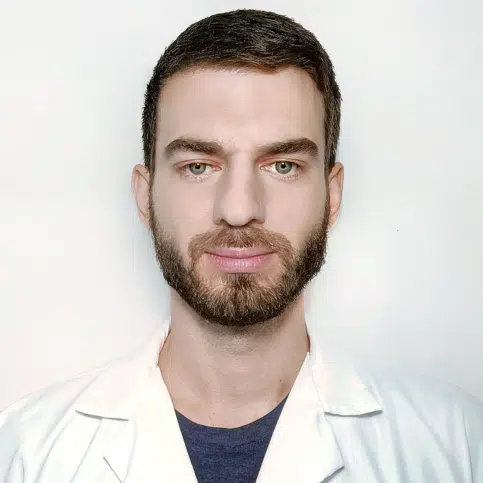Researcher Spotlight: Gonzalo Blanco Ares, PhD
THE FEINSTEIN INSTITUTES FOR MEDICAL RESEARCH
Bruce D. Cheson, MD Fellow

Care of patients with chronic lymphocytic leukemia (CLL) is complicated by the immunodeficiency that is associated with the disease, which can lead to higher mortality rates due to not only CLL but also other cancers and severe infections. Studying this immunodeficiency has been challenging, though, due to the overabundance of leukemia cells within the blood, which invariably replace the healthy B cells responsible for immunity. To better understand the mechanisms that drive immunodeficiency in CLL, Dr. Blanco’s research is focused on the molecular characterization of non-leukemia B cells found during the pre-leukemic stage of the disease, known as monoclonal B-cell lymphocytosis (MBL). Dr. Blanco hopes that this research will illuminate the mechanisms that drive immunodeficiency in MBL and CLL, as well as other forms of lymphoma, to support the development of novel therapeutic agents that will enhance quality of life and reduce infection-related deaths in lymphoma patients.
Dr. Blanco completed his doctoral research in biomedicine at Pompeu Fabra University of Barcelona in Spain. He is currently a postdoctoral researcher at the Feinstein Institutes for Medical Research at Northwell Health in New York. While his interest in lymphoma research began early on in his schooling, Dr. Blanco is also motivated by his father’s own diagnosis of lymphoplasmacytic lymphoma, which arose after he completed his doctoral studies. “Clearly, this has significantly fueled my commitment to advancing research in the lymphoma field,” he says.
Dr. Blanco hopes to prepare himself for a career as an independent investigator focused on understanding mechanisms of tumor immunity and developing novel preventive and therapeutic strategies for hematological malignancies. “Additionally, I aspire to mentor students and trainees to continue the infusion of creative minds into patient-oriented research and improve the management of the diseases that plague us,” he says.


